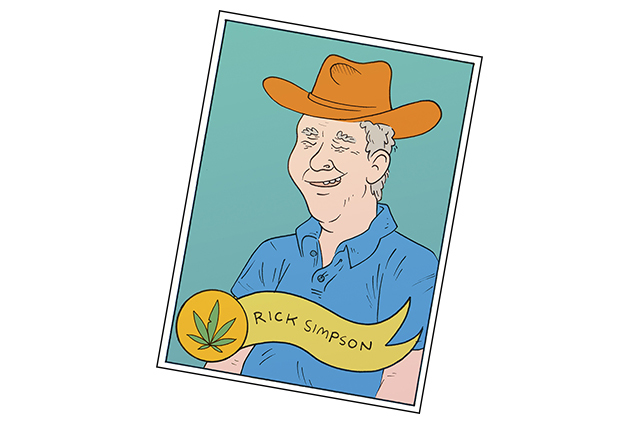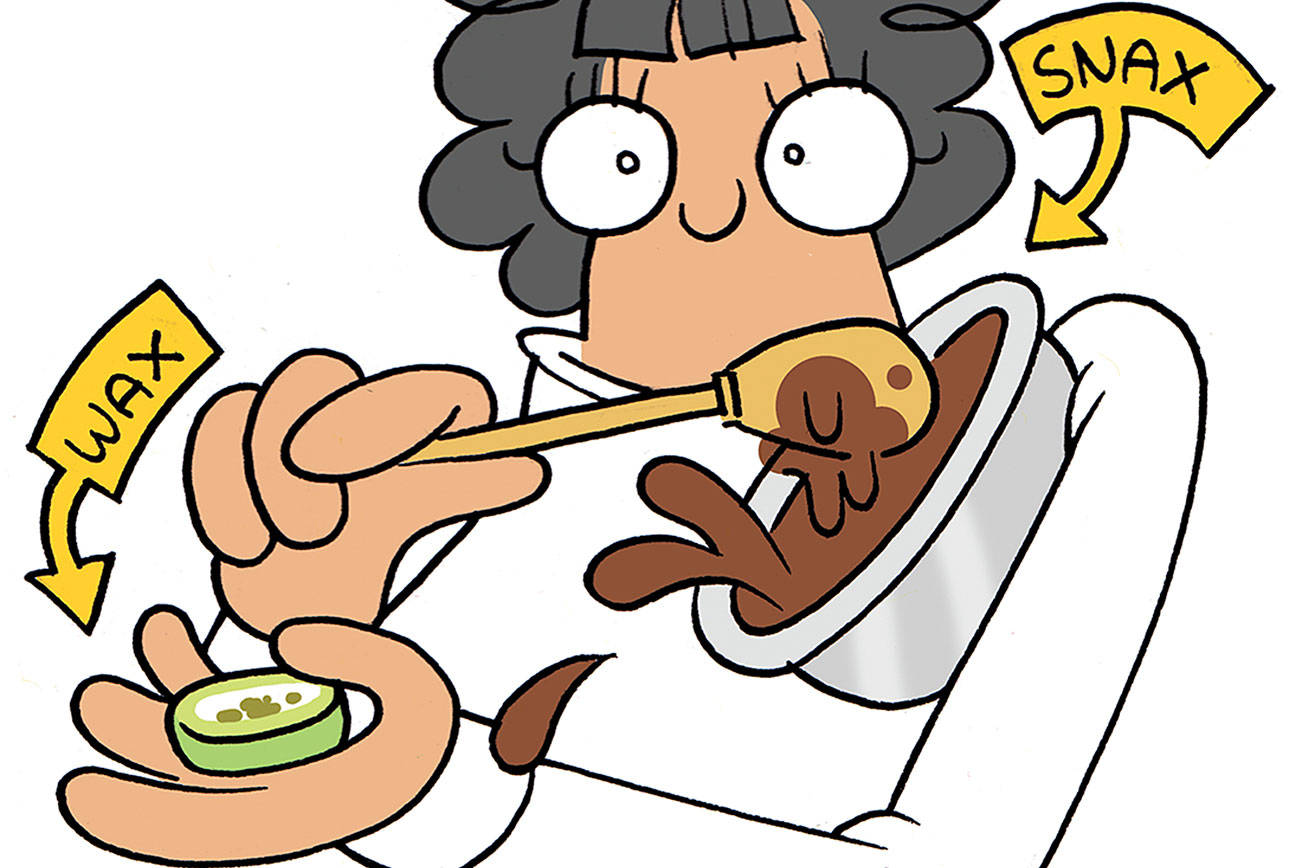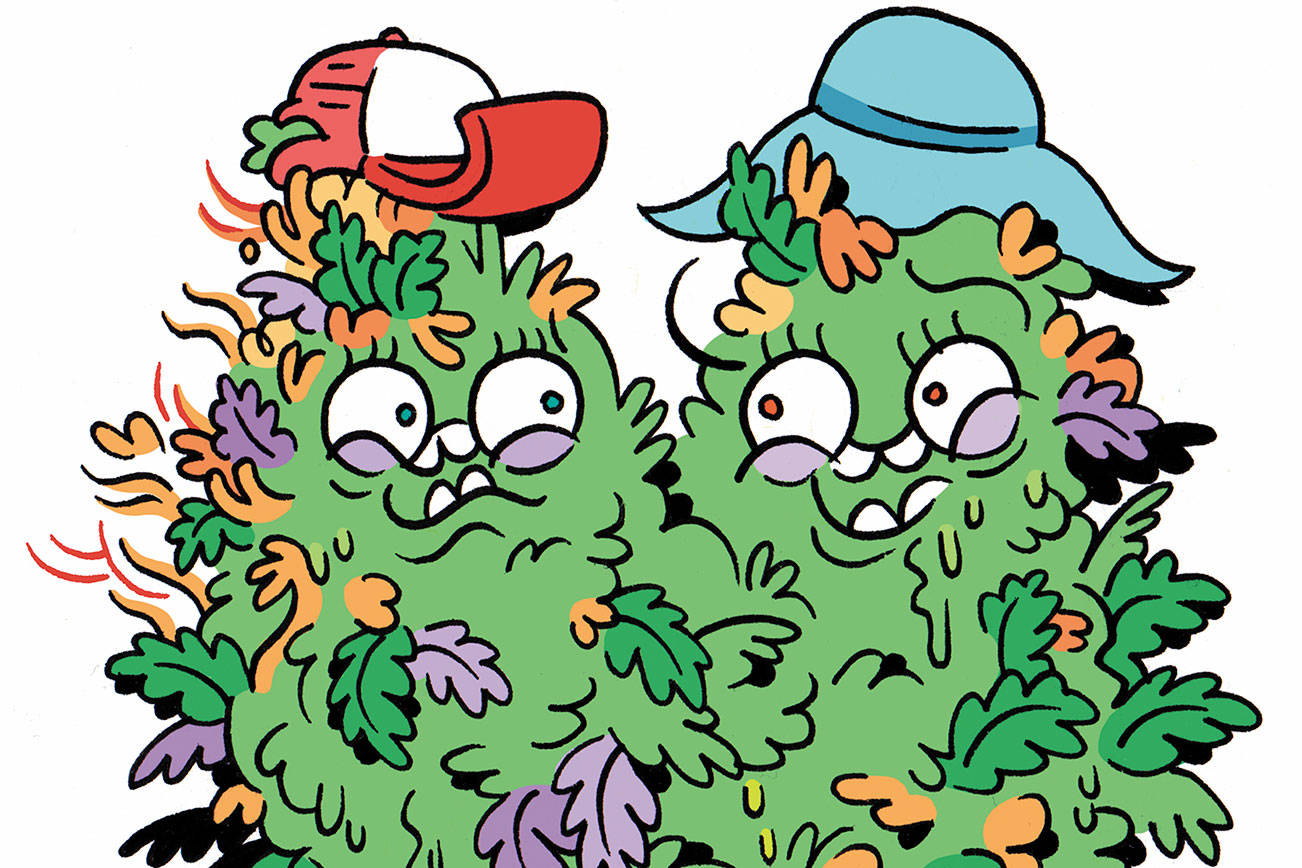In the 80-some years of cannabis prohibition in North America, a number of brave souls have pushed back against a system they see as unfair. If you enjoy the fruits of their labor, then you owe it to yourself to know something about them. That’s why I’m devoting this and a handful of future columns to these people, starting with a mild-mannered fellow from the backwoods of Nova Scotia named Rick Simpson.
Inventor of the now-infamous “Rick Simpson Oil,” or RSO, Simpson’s name has become synonymous with medicinal cannabis—and with controversy. Simpson and his devotees claim his RSO recipe can cure everything from asthma to zits. His critics say he’s just hawking snake oil, peddling false hope for people with terminal diseases.
In his autobiography, The Rick Simpson Story, Simpson explains how he tried cannabis for the first time in his late 40s following a work accident. Suffering from painful migraines and a loud ringing in his ears, Simpson was prescribed a battery of drugs. After a year, he was fed up with his doctors’ lack of answers. Then he saw David Suzuki, host of The Nature of Things, talk about cannabis’ potential as a medicine, and he became hopeful.
He immediately scheduled an appointment with his doctor to discuss getting a prescription. His doctor dismissed the idea, saying smoking was bad for the lungs and the drug was still under study. So Simpson bought some pot and tried it. Relief was immediate, but temporary.
Simpson’s doctor insisted that smoking the plant was harmful, so Simpson began experimenting with creating essential oils—concentrates—of cannabis at different strength levels. He took the oil orally, and soon the migraines and ringing subsided. His normal life began to return, his symptoms held at bay for longer and longer periods.
A few years later, Simpson states in his book, he self-treated three cancerous moles with RSO. They disappeared within a week. He began sharing the oil with loved ones, friends, and neighbors, who used it for glaucoma, tumors, arthritis, psoriasis. The list of ailments people claimed it could relieve grew daily.
The health and government groups that Simpson contacted with the news of his discovery just ignored him, dismissing him as a quack. Occasionally, the RCMP would raid his house, seizing thousands of plants but never arresting him.
As the radio silence from groups like the Canadian Cancer Society grew, Simpson decided to go public. His mission was to help the largest number of people. He created a film, Run From the Cure, and posted it to YouTube. He included several testimonials from those first patients who say they had received relief, and simple but effective instructions to make oil. The procedure can be as dangerous as some of the methods for making hash oil, as RSO requires strong solvents, heat, and ample ventilation. An errant spark or lack of proper ventilation could easily blow up a house. But the result is a small amount of sticky goo—a potential panacea for a catalogue of chronic diseases.
Simpson himself does not sell any product, though that doesn’t stop an army of impostors from offering their own “Rick Simpson Oil” online. Not only does Simpson not see a dime of profit from these sites, many of them are offering a product nowhere near as strong as the recommended dosage.
Has Simpson really discovered the cure to cancer, AIDS, autism, and a host of other illnesses? Several people have come forward to say they’ve tried RSO to no avail, their tumors, anxiety, and pain just as bad as without the drug. Supporters claim lasting cures are real if the recipe and dosage are accurate. In 2013, Tommy Chong reported curing his cancer with RSO, supplements, and spiritual healers. Unfortunately in 2015, his cancer came back. He’s currently using chemo and radiation, but supplementing his treatments with RSO.







